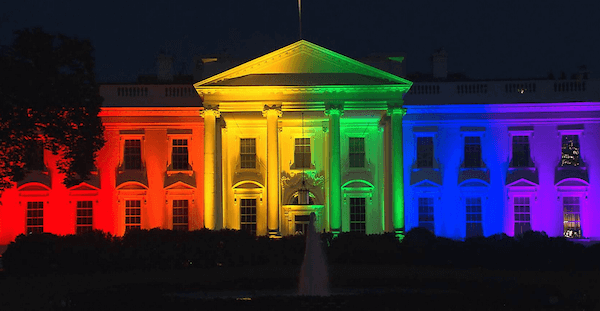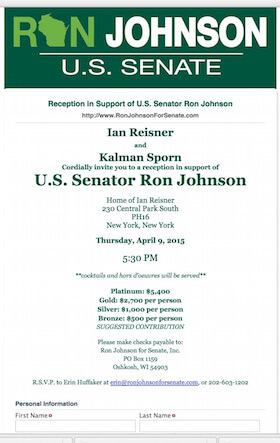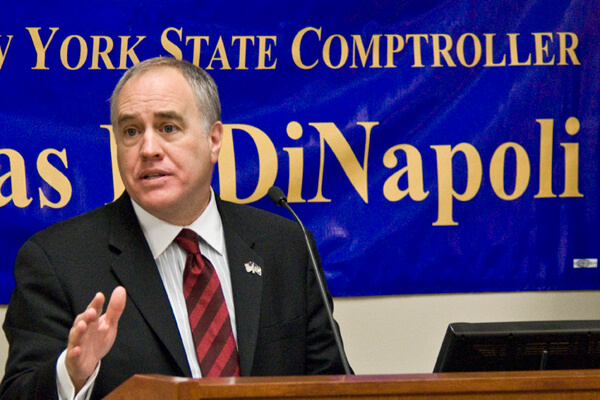Senator Jeff Merkley, an Oregon Democrat. | US SENATE
The Equality Act, introduced by Senator Jeff Merkley of Oregon and Representative David Cicilline of Rhode Island on July 23, is the first truly comprehensive federal measure attempting to provide legal equality for LGBT people in the United States.
It goes far beyond all prior bills on this topic, because no bill introduced in Congress until relatively recently included gender identity and those bills of recent vintage have been narrowly focused on employment discrimination.
By contrast, this bill gathers together references to the broad range of federal anti-discrimination statutes and inserts both “sexual orientation” and “gender identity” into every list of forbidden reasons for discrimination.
Merkley-Cicilline measure significant as much for what it does not say as what it says
Additionally, correcting a long-standing omission, it also adds “sex” to the list of prohibited grounds where it is not already included, most prominently in the public accommodations provision of the 1964 Civil Rights Act.
The bill as proposed would apply to public accommodations (establishments providing goods, services, or programs to the public), public facilities, public education, employment (both governmental and non-governmental), housing, credit, and federal jury service.
The public accommodations provisions had not been revised in the half-century since the 1964 Act was adopted, so the drafters took the opportunity to introduce a new definition that will make clear that every establishment or operation that provides goods, services, or programs to the public is covered, regardless of whether it has a fixed physical location. Some state public accommodations laws have been narrowly interpreted to apply only in guaranteeing equal access to specific places where goods or services are provided.
Because of the limits of federal jurisdiction, however, the Civil Rights Act’s employment provisions do not apply to small local businesses with fewer than 15 employees, and this bill would not change that.
Similarly, the Fair Housing Act has not been applied to owner-occupied rental housing or roommate decisions, and this bill would not change that.
Some state and local anti-discrimination laws do address smaller employers and residential property owners, but such operations have generally not been considered appropriate for federal regulation.
Some of the most significant aspects of the bill have to do with the things it doesn’t say.
For example, unlike the various versions of the Employment Non-Discrimination Act (ENDA) introduced in Congress over the past 20 years, this bill does not exclude disparate impact claims. ENDA would have prohibited only disparate treatment — situations where an employer adopted a policy or made a decision that explicitly treated one group of people worse than another group of people or where it could be shown that a decision was motivated by discriminatory animus against a particular group. But Title VII of the Civil Rights Act has long been interpreted by the Supreme Court to extend to situations where an employer adopts a policy or practice that is neutral on its face but has the effect of disadvantaging people because of their group identity.
In an case litigated under the 1965 Act, for example, the Supreme Court said that an employer who suddenly adopted a requirement for a high school diploma requirement after Title VII went into effect was violating the ban on race discrimination because that standard screened out a much greater number of African-American applicants then applicants from other racial groups.
US Representative David Cicilline, an out gay Rhode Island Democrat. | US CONGRESS
Another example of a significant omission in the new Equality Act has to do with what is known as “bona fide occupational qualification” (BFOQ) defense. The 1964 Act’s Title VII allows for the possibility that sometimes sex, religion, or national origin may actually be a legitimate qualification for a particular job, so it provides that it is not prohibited to use such a criterion if it is a “bona fide occupational qualification reasonably necessary to the normal operation of that particular business or enterprise.” Race and color were not included in the BFOQ list since Congress concluded that they can never be a bona fide occupational qualification. It is significant, then, that the Equality Bill does not add “sexual orientation” or “gender identity” to the BFOQ list, reflecting the view of the bill’s drafters that sexual orientation or gender identity can also never be a “bona fide occupational qualification.”
Since sex is on the BFOQ list, the Equality Bill anticipates potential issues by providing that where sex is a bona fide occupational qualification, “individuals are recognized as qualified in accordance with their gender identity.” That means that if an employer can show that a particular job can only be filled by a man, a transgender man would not be disqualified from that job, and if only a woman could do the job, then a transgender woman would not be disqualified from that job.
Federal courts have emphasized that the BFOQ exception should be very narrowly construed, putting a heavy burden on employers to show that the overwhelming majority of women would not be able to perform a job in question in a way that would fulfill the employer’s legitimate needs. The leading case involved applications from women for positions as guards in maximum-security all-male prisons housing violent sex offenders. There, the Supreme Court, in a divided vote, concluded the state could exclude women from those jobs on the ground that their presence in that environment would likely provoke serious security problems. But municipal employers quickly failed in their attempts to exclude women as police officers or fire fighters under this theory.
In tandem with this BFOQ section is a provision allowing religiously-affiliated educational institutions to limit their hiring to adherents to their religion. This is a potential flash-point when it comes to LGBT applicants and employees, as cases of parochial schools firing teachers after their same-sex marriages come to the attention of administrators demonstrate. The Equality Bill does not broaden this religious exemption to expressly allow religiously-affiliated educational institutions to refuse to hire LGBT people because their religion objects to homosexuality or transgender status.
But there is something else unsaid in Title VII that is pertinent to this issue. The Supreme Court has recognized a “ministerial exemption” for religious organizations under the First Amendment’s Free Exercise Clause, and has construed it to extend beyond employment of priests, ministers, rabbis, and other “ordained” religious leaders to employees of religious schools who perform “ministerial” functions, such as teaching religious doctrine or participating in leading religious activities. The courts would likely apply this ministerial exemption to shield religious schools from Title VII claims by LGBT individuals whose job functions would fall within those additional categories. When this bill finally becomes law, expect this to be an area of contention.
The Equality Bill directly addresses religion in another way, with a provision to reconcile it with the federal Religious Freedom Restoration Act (RFRA), passed by Congress in reaction to a Supreme Court decision in 1990 that held that the First Amendment’s Free Exercise Clause does not excuse people from complying with general laws that do not directly target religious practices. In RFRA as it was originally passed, Congress said that neither the federal government nor state or local governments could impose a substantial burden on a person’s religious practices unless the government had a compelling public objective for doing so and the law it adopted was the least intrusive way to achieve that objective.
The Supreme Court subsequently said that Congress did not have authority to apply RFRA to state and local governments, so it now works only as a limitation on the burdens imposed by federal law. Some states have moved to fill that “gap” by adopting state-level RFRA statutes, which have now become flash-points in the battles surrounding marriage equality.
More recently, the Supreme Court has ruled that federal RFRA’s protection of “persons” extends to legal persons as defined in the US Code, which includes business corporations. In the infamous 2014 Hobby Lobby Stores v. Burwell case, the court said that a family-owned corporation whose owners had religious objections to certain kinds of contraception could not be required under the Affordable Care Act to provide their employees with coverage for them.
Justice Ruth Bader Ginsburg’s dissent sounded the alarm on discrimination, suggesting that some employers might rely on RFRA to discriminate based on their religious beliefs against, for example, gay people. She cited a case where a gym owned by a Christian fundamentalist had excluded gay people from membership in violation of a state anti-discrimination law, and the state courts had ruled that the policy against discrimination outweighed the owner’s religious objections.
Would that case come out the same way under the Supreme Court’s interpretation of RFRA? In his opinion for the Supreme Court, Justice Samuel Alito said that RFRA could not be used to defend against a race discrimination claim, leaving open the question whether it could be used to defend against other kinds of discrimination claims.
The drafters of the Equality Act have anticipated that issue, providing specifically that federal RFRA “shall not provide a claim concerning, or a defense to a claim under, a covered title, or provide a basis for challenging the application or enforcement of a covered title” –– “covered title” referring to each of the anti-discrimination provisions in the US Code mentioned in the new bill.
Taking on one of the most contentious issues in debates over gender identity discrimination, the Equality Bill’s employment section provides that “an individual shall not be denied access to a shared facility, including a restroom, a locker room, and a dressing room, in accordance with the individual’s gender identity.”
Over the past few years, federal agencies and courts have begun to accept the argument that discrimination because of sexual orientation or gender identity is a kind of sex discrimination, that would already be covered by existing statutes. The Equal Employment Opportunity Commission has issued rulings to that effect, most recently on sexual orientation just a week ago. The Department of Housing and Urban Development has recognized gender identity discrimination claims under the Fair Housing Act, the Education Department has found a basis for some protection in public education, and the Justice Department has also ruled on gender identity claims.
None of these advances obviates the need for the Equality Bill, since the courts have not been unanimous in accepting these administrative rulings, and they have yet to be tested in the Supreme Court. Consequently, the explicit addition of sexual orientation and gender identity to federal civil rights statutes would be more than merely symbolic. But to drive home the point about gender identity and sexual orientation discrimination being sex discrimination, the Equality Bill explicitly provides that where federal civil rights laws ban sex discrimination, that should be interpreted to include sexual orientation and gender identity discrimination as well. This would “lock in” those administrative rulings as correct interpretations of the statute.
Symbolism is itself important. One of the purposes for passing civil rights legislation is to prevent such discrimination from happening by declaring a public policy against it and incentivizing employers, business owners, public officials, and landlords to avoid litigation by refraining from discrimination. Surveys of state and local civil rights agencies that have been enforcing laws that forbid sexual orientation and gender identity discrimination reveal that they do not receive a large volume of complaints, most likely because the publicity and debate around the adoption of those local laws helped to change minds and deter discrimination from occurring.
The extended national discussion that is likely to accompany the process of adopting the Equality Act may have the same salutary effect.




































